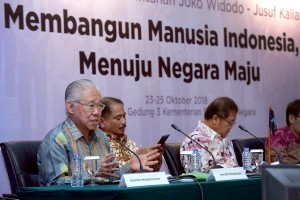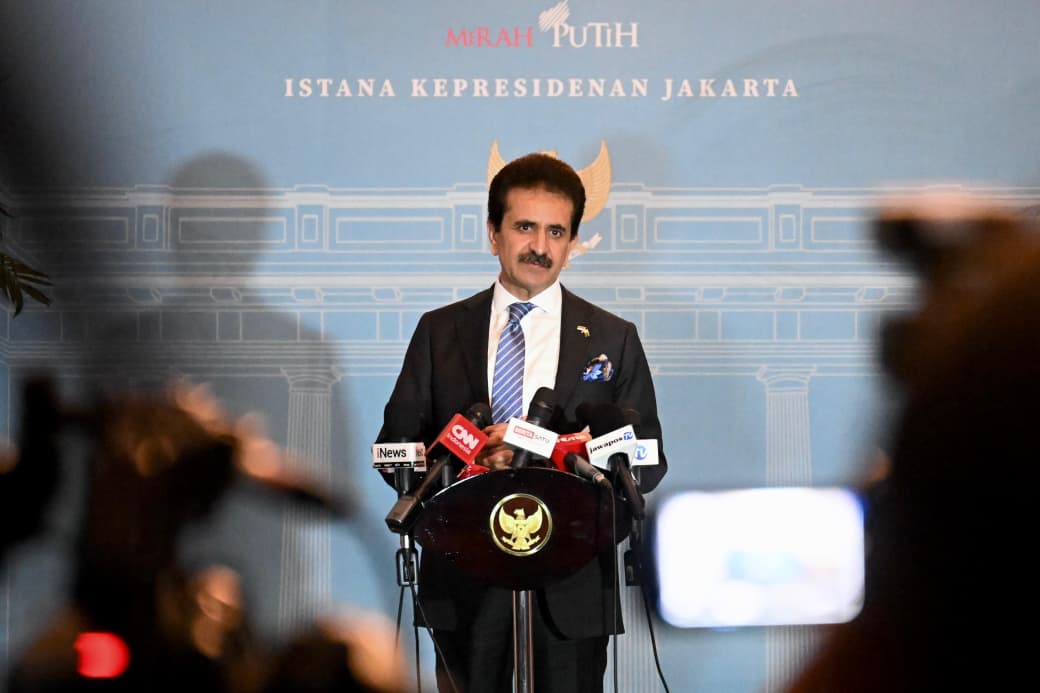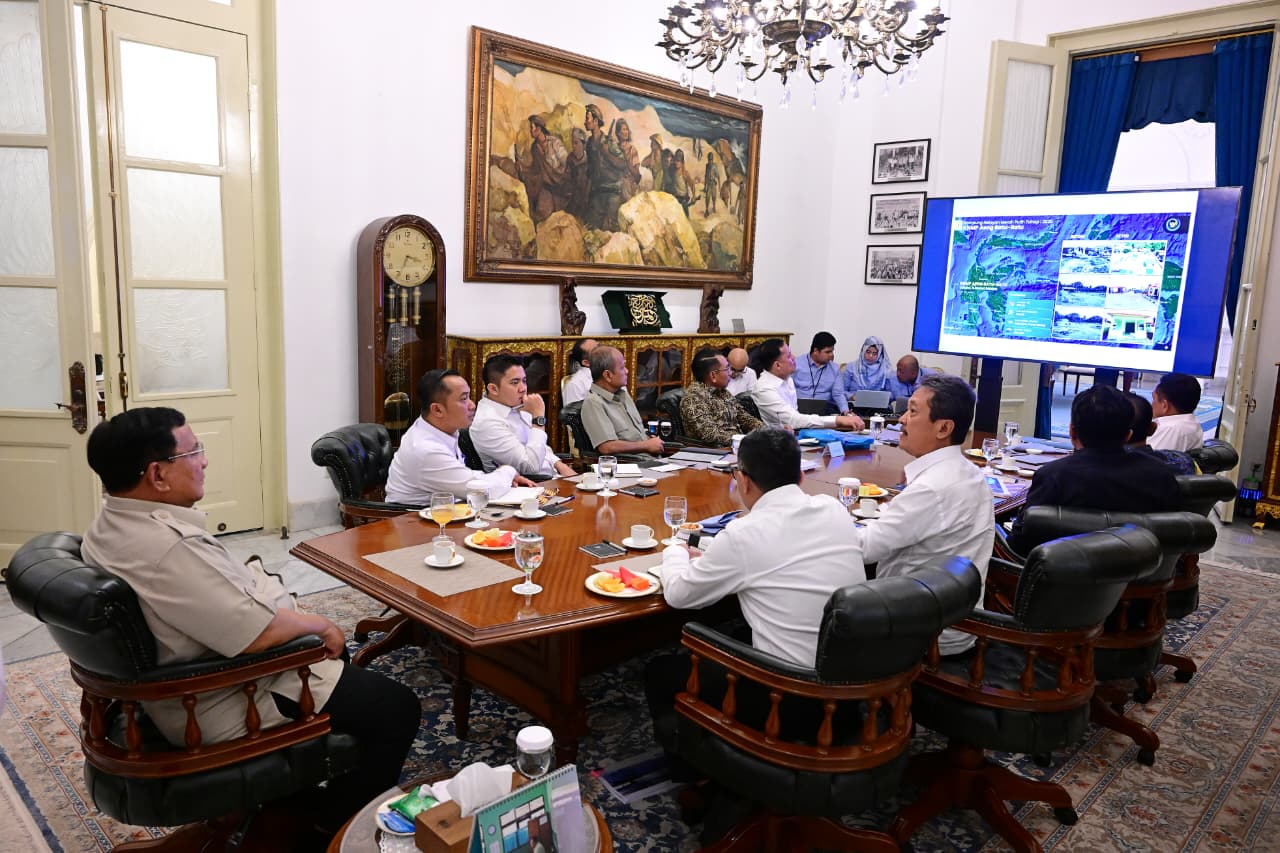Trade Minister: Indonesia Sees Rising Exports

Minister of Trade Enggartiasto Lukita accompanied by a number of ministers during the press conference, at the Building III of the Ministry of State Secretariat, Jakarta, Tuesday (23/10). (Photo by: Agung/Public Relations).
The realization of Indonesia’s export value in recent years continues to show growth, according to Indonesian Minister of Trade Enggartiasto Lukita.
The Minister added that realization of Indonesia’s export value in 2016 reached US$145.1 billion, while in 2017 it was recorded at US$168.7 billion.
In the January-September 2017 period, Indonesia’s exports were recorded at US$123.3 billion, while in the same period this year, Indonesia’s export reached US$134.9 billion, Enggartiasto said in the press conference on the 4-Year Report on President Joko Jokowi Widodo-Vice President Jusuf Kalla Administration adopting the theme Building People of Indonesia towards Advanced Country, at the Building III of Ministry of State Secretariat, Jakarta, Tuesday (23/10).
According to the Minister, Indonesia could also increase its exports or market share in global trade in accordance with President Jokowi’s instruction by opening new markets.
Besides the existing old markets, we also have begun trade agreements some other countries, he said, adding that the Government had just signed three new agreements with Palestine, Chile, and Australia.
The Minister said that the agreement with the Palestinians is a form of political support consistency from the Indonesian Government.
The President ordered us to provide full support, including economic support. Thus, we have done a trade agreement with Palestine by charging them 0% of import duty, he said, adding that currently there are only two export requests from Palestine, namely dates and olive oil.
Furthermore, in every preparation of the discussion of the trade agreement, Enggartiasto continued, he does not make the negotiation and discussion in an official working visit as he also wants to involve entrepreneurs, creating business forums, and doing one on one business matching because it will be a momentum to promote Indonesia.
I always analyze costs and benefits of each working visit, Enggartiasto added.
In the meantime, Minister of Industry Airlangga Hartarto said, compared to 2014, added values of Indonesias industry in 2018 rose to US$236.69 billion, from previously at US$202 billion.
As for the competitiveness index ranking, Indonesia is ranked on 45th place, two rank higher than last year, while in terms of the added value of the whole global industry, Indonesias rank has moved from 12th place in 2014 to 9th in this year, he added.
In global market share, our position has also increased from 1.74 percent to 1.84 percent, Airlangga said, adding that the average industrial growth accumulated value is 4.9 percent.
The Minister added that investment in Indonesia has also improved, especially on food and beverage subsector which grew by 9 percent. According to the target, the automotive, metals, chemicals, textiles and apparel industries contribution is in accordance with the priority of Industry 4.0.
Furthermore, Airlangga said that the manufacturing sector or processing industry is contributing to economic sector of 20.04 percent, while non-oil and gas industry is 17.8 percent. It contributes to the overall economic sector nationally and this is the sector with the highest contribution, Airlangga said.
In terms of labor, Minister of Industry said that the number of industrial workers continued to increase. In 2018, industrial workers made up 17.92 percent while the total population of the industry, while the number of large and medium-scale industries has also increased, from 2014 to 2017 amounting to 5,898 business units. Meanwhile, the number of small-scale industries has also increased from 3.52 million in 2014 to 4.49 million. This means that there is an increase of 970 thousand in small-scale industries, he said.
The top five investments in this semester, according to Airlangga, are food and beverages sector amounting to Rp29.14 trillion, chemical sector of Rp28.97 trillion, metal goods sector of Rp18.89 trillion, conveyances sector of Rp5.53 trillion, textile/apparel sector of Rp.4.65 trillion and those sectors are in line with the prioritized Industry 4.0.
Airlangga also said that the automotive industries export has also reported a growth. Toyota, Mitsubishi and Suzuki use Indonesia as a main factory to export to various countries, he said.
Regarding the Indonesia Centric program, the industrial area development has opened various industrial areas, such as in Dumai, Banten and Kendal. This is expected to foster capacity or new industries in the regions, both inside and outside of Java, he concluded. (DND/UN/FID/AGG/ES) (GWH/EP/Naster)








